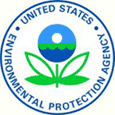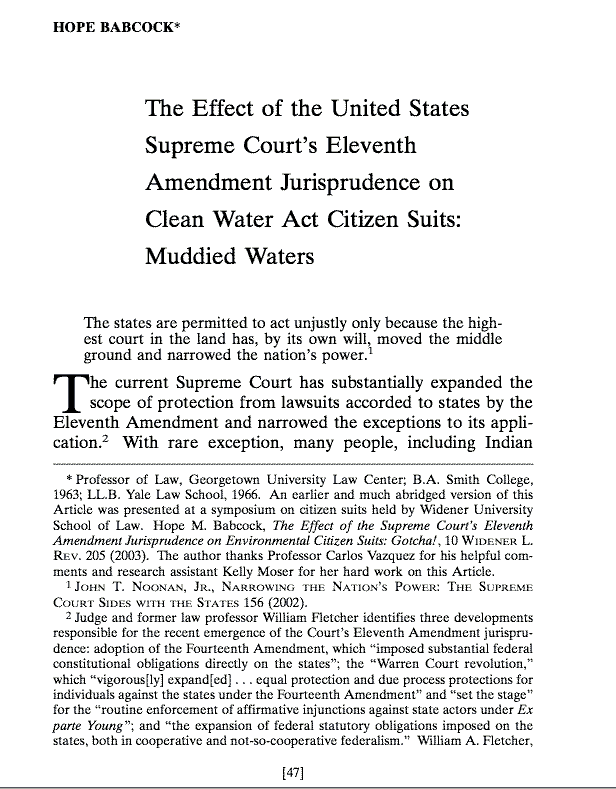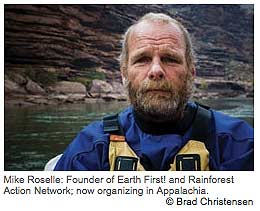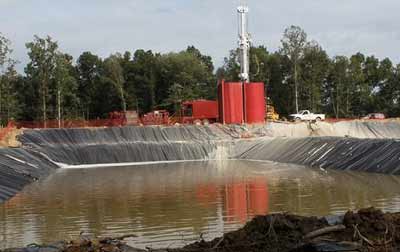Legal
"New York state environmental officials announced Friday that they would impose far stricter regulations for a new type of natural gas drilling in the state’s only two unfiltered water supplies, making it highly unlikely that any drilling will be done in the Catskills watershed that supplies drinking water to New York City...
...Although they did not impose an outright ban, state officials said that any natural gas company would have to conduct a separate environmental impact review for every well it proposed to drill in either watershed. In other areas, companies would face a far less cumbersome permit process that would rely on the state’s own environmental assessment of where drilling can be allowed...
...With a major controversy surrounding the proposed drilling out of the way, state officials said that they expected to release their final regulations on hydraulic fracturing by the end of the year after considering more than 14,000 public comments.
While it stirred deep opposition in New York City and nearby counties, the drilling drew substantial support from many upstate residents who argued that the benefits would far outweigh any risks given the weakness of the economy.
The conservation department’s commissioner, Pete Grannis, said that landowners’ property rights had weighed heavily in the decision not to issue a ban on drilling in the two watersheds. He said that about 70 percent of watershed property is privately owned and that a ban would have undoubtedly brought on lawsuits from owners deprived of lucrative leasing deals with gas companies.
“At the end of the day, an outright ban risks very substantial litigation,” he said.
Instead, the department decided to add more scrutiny to any potential application to drill in the two areas, he said.
But while the well-by-well environmental reviews will be a deterrent to the drilling, environmental groups were not claiming victory. Kate Sinding, a senior attorney with the Natural Resources Defense Council, said nothing but a ban would ensure that gas companies do not exploit the watersheds in the future.
“If they get into the shale and find it productive, they’re going to knock on the door of the watershed,” she said. “This announcement puts off for another day a decision that could be made today"...
...Jim Smith, a spokesman for the Independent Oil and Gas Association of New York, called the state’s regulatory stance “excessive and unnecessary.”
...Deborah Goldberg, an attorney with Earthjustice, an environmental law firm, said the final SGEIS must include substantial changes to account for the cumulative effect of drilling thousands and perhaps tens of thousands of Marcellus wells in New York. If not, the firm will help spearhead a legal challenge, most likely in state Supreme Court in Albany.
That would involve filing an Article 78 Proceeding challenging the DEC's adherence to the State Environmental Quality Review Act.
See: Eileen Millett, Toxic Tort Litigation Blog.
The challenge for attorneys and for courts will arise as communities grapple with:
- Managing the use of water, water withdrawals, what authority controls and who regulates;
- Impacts if any on waterbodies and aquatic life in affected water bodies accepting chemical fluids of varying composition;
- Adequacy and availability of treatment and pre treatment facilities.
See: Dave Cohen. Energy Bulletin. "Shale Gas Shenanigans" Mar 29 2010.
According to the website, Endangered Environmental Laws, "...over time, courts have transformed [the Eleventh Amendment] into a sweeping doctrine of state “sovereign immunity,” unmoored from the Constitution’s text, and in recent years, a conservative bloc of the Supreme Court has further expanded states’ immunity from private lawsuits.
In the environmental context, this has led to near-total immunity of state agencies from citizen suits under the federal coal-mining statute; to similar challenges (so far unsuccessful) to citizen litigation under the Clean Air Act and the Endangered Species Act; and to dismissal of state employees’ whistleblower complaints under the Solid Waste Disposal Act and other laws."
"The states are permitted to act unjustly only because the highest court in the land has, by its own will, moved the middle ground and narrowed the nation's power.
With rare exception, many people, including Indian tribes, federal employees, patent holders, the elderly, and the disabled, find themselves unable to vindicate rights granted by federal laws in any court when the defendant is a state or a state agency."
Babcock, H. “Effect of the United States Supreme Court's Eleventh Amendment Jurisprudence on Clean Water Act Citizen Suits: Muddied Waters, The.” Oregon Law Review 83 (2004): 47.
See: Rulings Restrict Clean Water Act, Foiling E.P.A.
See: Activists Block Entrance to DEP Headquarters, Condemn Failed Enforcement
A disturbing amount of the climate justice movement’s “action” is taken alone, within our own homes.
We sit at our computers and post, Tweet, comment and write op-eds. We call our Senators and legislators. We change our light bulbs and insulate our homes (literally and figuratively.)
The picture that naturally develops in our minds is of little me, sitting here fighting the world’s biggest corporations and their political stooges. That’s a pretty discouraging picture.
Despite all the attempts of social media to build “community,” everyone is still sitting alone at computers. We did not evolve to develop powerful relationships with an avatar, sending us an instant message.
That’s why a million screen names out there somewhere don’t help us deeply internalize the truth that we are part of something large and powerful. We evolved to connect with human beings that we can see, hear, smell and feel, and it is that kind of connection that empowers us on a deep level...
...The more I advocate for stronger and bolder action from climate activists, the more I see the need for real human connections. No amount of social media can match the empowerment of being in the streets with thousands of other people who share our passion. That’s why mass mobilizations that engage in bold action are so important for our movement.
Read joint letter explaining the urgent need for solidarity on December 13th.
See: "Student Disrupts Government Auction of 150,000 Acres Of Wilderness For Oil & Gas Drilling."
 For full interview click here.
For full interview click here.
See: Judge says drilling lease lawsuit too late
See: Tim DeChristopher's blog and update on his legal battle.
See: As climate crime continues, who are we sending to jail? Tim DeChristopher?
One Year Update
Tim is facing ten years in prison on two felony charges for derailing an illegal sale of public land from the outgoing Bush administration to private oil and gas developers.
A full year after I disrupted the BLM oil and gas auction, I still have no regrets for my actions. The legal case against me continues.
This kind of trial is nothing but intimidation-- and the best answers to intimidation are joy and resolve. That’s what we’ll need in Utah.
Read joint letter explaining the urgent need for solidarity on February 28.
See: "Student Disrupts Government Auction of 150,000 Acres Of Wilderness For Oil & Gas Drilling."
See: As climate crime continues, who are we sending to jail? Tim DeChristopher?
Roselle—cofounder of the Rainforest Action Network and Earth First!—offers a memoir of his career in radical activism—from teenage Yippie to career environmentalist, who admits he shares his generation's complicity in creating the mess we are in today and is now fighting against mountaintop-removal coal mining in Appalachia.
Video excerpt from interview by Michael C O'Connell (hawriverfilms) of Mike Roselle, from a jail cell in West Virginia. Mr. Roselle has protested mountaintop removal coal mining in West Virginia. Interview shot for upcoming project by Haw River Films.
Non-Violent Civil Disobedience has been an option for citizens to attempt to change laws that are considered unfair or are not being enforced by government regulatory agencies.
See: Student Disrupts Government Auction of 150,000 Acres Of Wilderness For Oil & Gas Drilling.
See: U.S. Fines Mine Owner $20 Million for Pollution
See: Gas Drillers Plead Guilty to Felony Dumping Violations
A call to reduce the exorbitant bail set for non-violent civil disobedience.
Madison, W.Va. – EmmaKate Martin and Benjamin Bryant were arrested this morning while blockading the driveway to Massey Energy’s regional headquarters in Boone county, W.Va. Magistrate Snodgrass set their bails at $100,000 each for misdemeanor charges of trespassing, conspiracy to commit a misdemeanor, obstructing an officer, and littering.
Source: Climate Ground Zero
Andrew works for the Student Environmental Action Coalition's as administrative coordinator. As a student, he organized for the Michigan Student Sustainability Coalition. There are not many things he loves more than movement building.
May 17, 2010: Climate Ground Zero Activists Blockade Massey Energy Headquarters
On the morning of May 17, 2010 two activists associated with Climate Ground Zero erected a tripod tent on the driveway of Massey Energy's regional headquarters in Boone county, West Virginia. The two activists, EmmaKate Martin and Benjamin Bryant, locked themselves to the base of one of the poles. Both were arrested and charged with misdemeanor offenses of trespassing, conspiracy to commit a misdemeanor, obstructing an officer and littering. Their bails were set for $100,000 each by West Virgina Magistrate Snodgrass.
The banner they hung from the tripod read “Massey, Profits Before People & Mountains, Fight Back!” The bail was the largest ever set against any activists conducting non-violent actions against mountaintop removal in West Virginia.[56]

U.S. Environmental Protection Agency (EPA MOA). 2003. A Memorandum of Agreement Between The United States Environmental Protection Agency and BJ Services Company, Halliburton Energy Services, Inc., and Schlumberger Technology Corporation: Elimination of Diesel Fuel in Hydraulic Fracturing Fluids Injected into Underground Sources of Drinking Water During Hydraulic Fracturing of Coalbed Methane Wells, Dec. 12, 2003.
"While the Companies do not necessarily agree that hydraulic fracturing fluids using diesel fuel endanger USDWs when they are injected into CBM production wells, the Companies are prepared to enter into this agreement in response to EPA’s concerns and to reduce potential risks to the environment." See Drilling Around the Law for a follow-up on this voluntary agreement. According to the Environmental Working Group's report, "This promise, however, applied to only coalbed methane wells -- a small portion of natural gas and oil wells drilled – and only to those drilled directly into underground sources of drinking water."
David Sternberg. 1/27/2010. "EPA Announces “Eyes on Drilling” Tipline".
The U.S. Environmental Protection Agency today announced the creation of the “Eyes on Drilling” tipline for citizens to report non-emergency suspicious activity related to oil and natural gas development.
The agency is asking citizens to call 1-877-919-4EPA (toll free) if they observe what appears to be illegal disposal of wastes or other suspicious activity.
Tip email address: eyesondrilling@epa.gov
Citizens may provide tips anonymously if they don’t want to identify themselves.
EPA's Mid-Atlantic Region has a natural gas drilling tip line for reporting dumping and other illegal or suspicious hauling and/or disposal activities.
Tip mailing address: EPA Region 3
1650 Arch Street (3CEOO)
Philadelphia, PA 19103-2029
In the event of an emergency, such as a spill or release of hazardous material, including oil, to the environment, citizens are advised to call the National Response Center at 1-800-424-8802.
Public concern about the environmental impacts of oil and natural gas drilling has increased in recent months, particularly regarding development of the Marcellus Shale formation where a significant amount of activity is occurring.
While EPA doesn’t grant permits for oil and gas drilling operations, there are EPA regulations which may apply to the storage of petroleum products and drilling fluids. The agency is also very concerned about the proper disposal of waste products, and protecting air and water resources.
See: Marcellus-Shale.us based in Pennsylvania, Photographs of fracking trucks.
The UIC Program is responsible for regulating the construction, operation, permitting, and closure of injection wells that place fluids underground for storage or disposal.
This site provides information for owners and operators of injection wells and state regulators on how to safely operate injection wells to prevent contamination of underground drinking water resources.
See: A searchable database covering all EISs filed with EPA since January 2004.
See: Where You Live (EPA) Regional Contacts.
State UIC Programs have primary enforcement responsibility (or primacy) once their UIC programs have been approved by EPA. The UIC Program Primacy page provides information about the requirements for obtaining primacy and which states have been granted this authority.
The UIC Program requirements were developed by EPA and designed to be adopted by states, territories, and tribes. States, territories, and tribes can submit an application to EPA to obtain primary enforcement responsibility, or primacy.
Agencies that have been granted this authority oversee the injection activities in their states. The requirements for primacy programs are outlined in the UIC regulations at 40 CFR Part 145.

Abstract:
As the hunt for important unconventional gas resources in America expands, an increasingly popular method of wringing resources from stubborn underground formations is a process called hydraulic fracturing – also described as hydrofracturing, fracking, or fracing – wherein fluids are pumped at high pressure underground to fracture a formation and release trapped oil or gas.
Operators have fraced wells for more than fifty years, but the practice has recently grown rapidly in areas like the Barnett Shale of North Central Texas and the Marcellus Shale beneath Pennsylvania, New York, and other Appalachian states.
This Article describes the process of hydraulic fracturing, existing studies of the environmental effects of hydraulic fracturing, and the laws and regulations that apply to the practice. It argues that there is no direct federal regulation of the fracing process (the pumping of fluids into a wellbore), that court guidance in this area is limited, and that state regulations differ substantially.
Although other general regulations apply to the practice, the Article argues that in light of the dearth of regulation specific to fracturing in some areas, more study of the potential environmental and human health effects of fracing is needed in order to determine whether current regulation is sufficient. The EPA completed a partial study in 2004, but this Article focuses on the deficiencies of that study and calls for a new, national, scientific study of the practice.
Conclusion:
...no one knows the full range of effects because they have not been adequately researched. The EPA’s report is the most comprehensive to date, but was part of a highly-charged political process and was never completed, because the EPA concluded, perhaps prematurely, that further study was unnecessary.
Furthermore, the report investigated fracing in only one type of formation – coalbeds – and assessed the impacts of one stage of fracing, failing to seriously consider concerns such as groundwater depletion and surface disposal of fracing waste.
The highest regulatory priority for fracing should be the instigation of a federal, scientifically rigorous report prepared by the National Academy of Sciences or a similar “neutral” body and a simultaneous regulatory risk-limiting mechanism.
Next, based on the data contained within this report, and given the risks of certain types of fracing, Congress should consider reversing its 2005 exemption of fracing from the Safe Drinking Water Act; it should not wait to commence this process pending the completion of the report, although the report will be essential for future statutory and regulatory decisions.
...In the rush to extract essential resources, a process which itself contributes to human wellbeing, other aspects of human wellbeing – the quality of the environment and public health – must not be cast aside as a mere impediment to progress.
See: Oil & Gas Accountability Project (OGAP)
See also: Pew Campaign for Responsible Mining

















